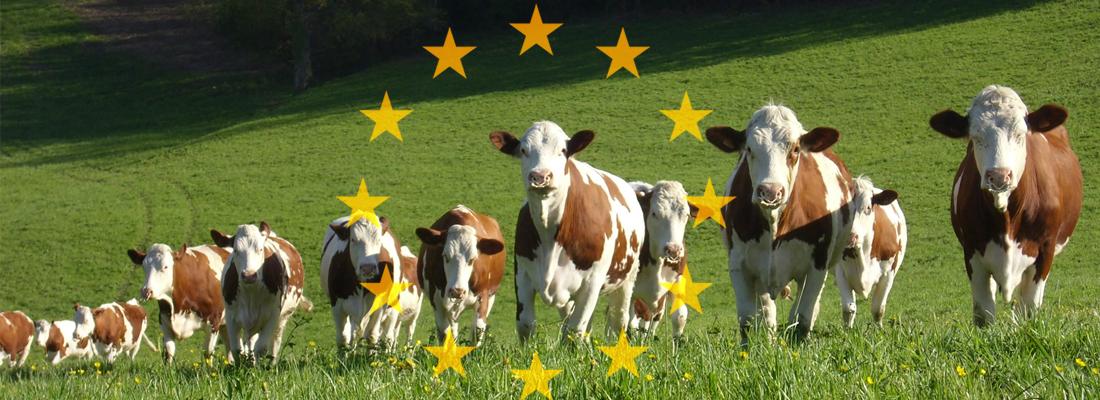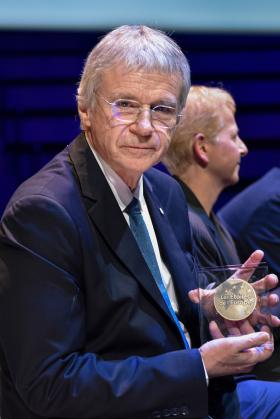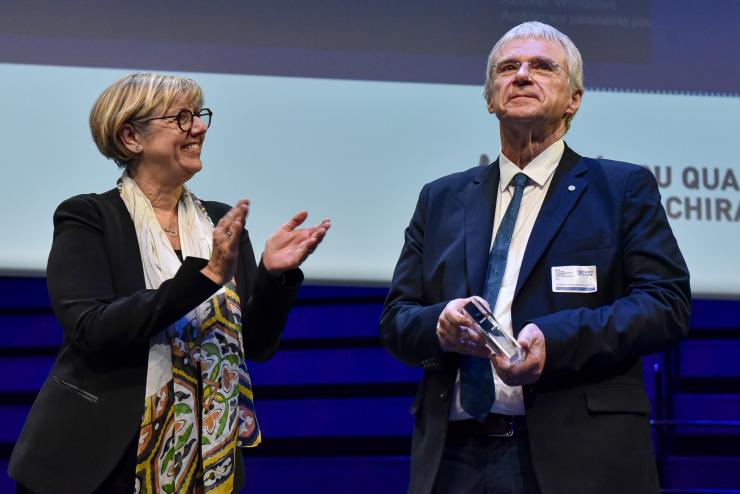Agroecology Reading time 5 min
France honours René Baumont’s European research vision
Published on 06 December 2022


On Tuesday, December 6, the 2022 Horizon Europe Forum took place at its usual venue: Musée du Quai Branly – Jacques Chirac in Paris.
The gathering focused on EU research projects, Horizon Europe research infrastructure, and the current shining stars of European science.
An independent jury selected the twelve award winners, a group that included René Baumont. Baumont is a research director at the INRAE Centre of Clermont-Auvergne-Rhône-Alpes. His work focuses on herbivores, and he coordinated the SmartCow consortium.
SmartCow—an integrated infrastructure promoting research and innovation in the European cattle industry
In Europe, livestock farming is an economic heavyweight that is confronting major challenges. It must lighten its environmental footprint and walk softly when addressing societal expectations for animal welfare...all while remaining competitive.
"To respond to these challenges, European researchers in the animal and livestock sciences must collaborate, pool their resources, and build synergistic relationships between public and private research institutions. This work is essential if we wish to develop successful strategies for improving the sustainability of cattle production systems in the face of climate change," comments Baumont.
Such is the long-term goal of efforts launched by SmartCow, which René Baumont began coordinating in 2018.
SmartCow: an integrated infrastructure for increased research capability and innovation in the European cattle sector
H2020 Project no. 730924
Coordinator: René Baumont, INRAE Research Director
Primary Host Institution: INRAE
Amount of European funding: €4,999,944
Project Period: 2018–2022
Institutional Partners: France—INRAE and French Livestock Institute (IDELE); UK—Scottish Rural College (SRUC), University of Reading (UREAD), and Agrimetrics; Netherlands—Wageningen University (WU) and Stichting Wageningen Research (WUR-DLO); Germany—Research Institute for Farm Animal Biology (FBN); Ireland—Agriculture and Food Development Authority (TEAGASC); Denmark—Aarhus University (AU); Spain—Institute of Agrifood Research and Technology (IRTA); Belgium—Walloon Agricultural Research Centre; Italy—European Federation of Animal Science (EAAP)
SmartCow brought together 14 partner institutions from across Europe. Together, their work spans all the relevant scientific domains and addresses a diversity of cattle types and production systems. The consortium has given rise to 24 projects run by public and private institutions that are testing technological developments in various fields of animal nutrition. This research quantified the accuracy of the reference methods used in studies of cattle nutrition and behaviour. Its results have led to recommended improvements. Additionally, it has developed and validated new predictors of feed efficiency, methane emissions, and animal health status.
The SmartCow consortium also came up with a set of ethical and experimental recommendations for animal nutrition and welfare research. These have been shared in a book and via training sessions focused on best practices in research.
Danesh Mesgaran S., Kuhla B., Dineen N. et al. (2020). Methods in cattle physiology and behaviour research – Recommendations from the SmartCow consortium. Publisso. DOI: 10.5680/mcpb005
Although SmartCow officially ended in April 2022, the infrastructure it built will continue to promote research on agroecological transitions in agricultural systems. These efforts are embodied by the project AgroServ: Integrated services supporting a sustainable agroecological transition (EU: 2022–2027), which brings together 12 major research infrastructures specialising in the agricultural, environmental, and food sciences. "We have decided to preserve the SmartCow network and some of its activities via the creation of a European Research Group. SmartCow partners have all signed a consortium agreement with this aim", adds Baumont.
By choosing Baumont for the Étoiles de l’Europe award, the French government is recognising his success and dedication. The honour is specifically reserved for French scientists who have chosen to work within a European framework as they develop their research and embrace innovation. Minister of Higher Education and Research Sylvie Retailleau presented Baumont with his trophy during the Horizon Europe Forum to great audience applause.

